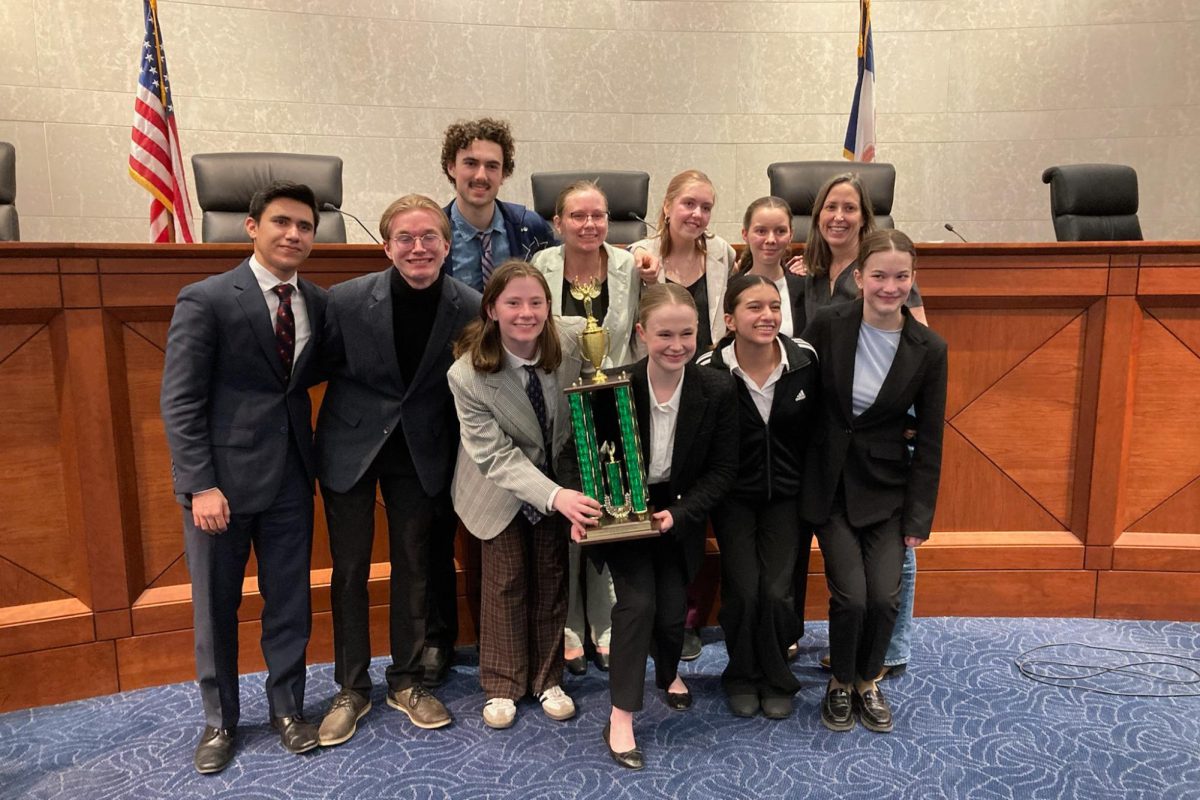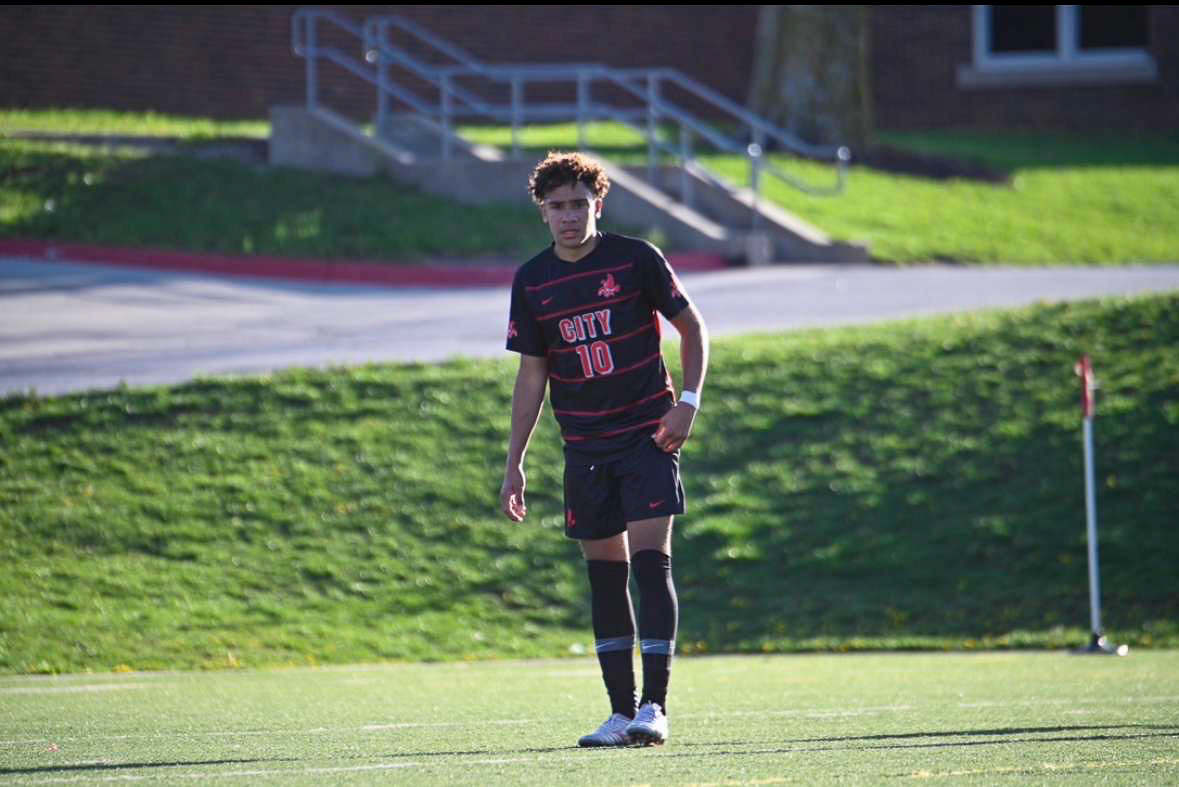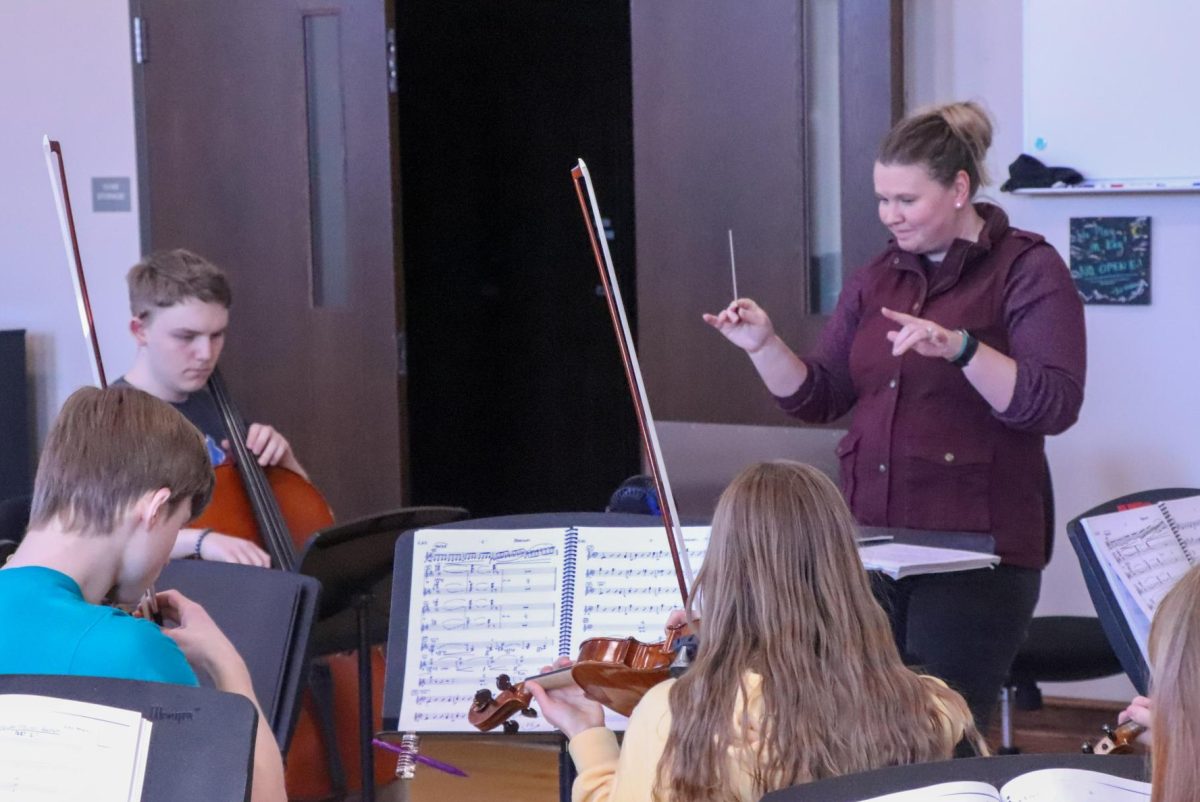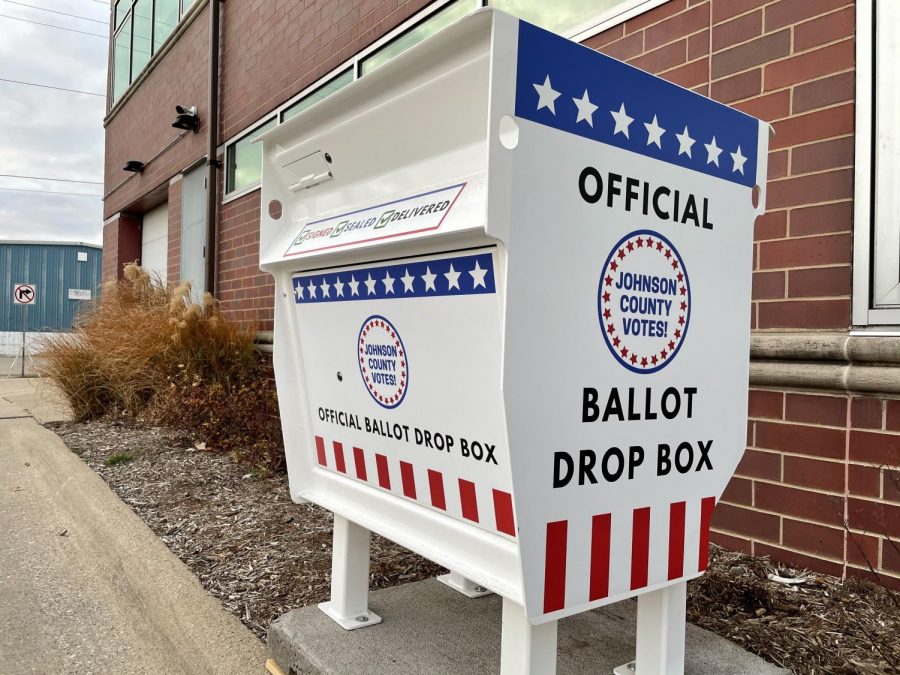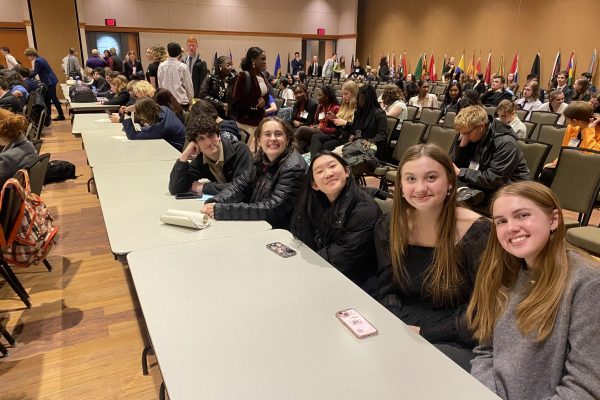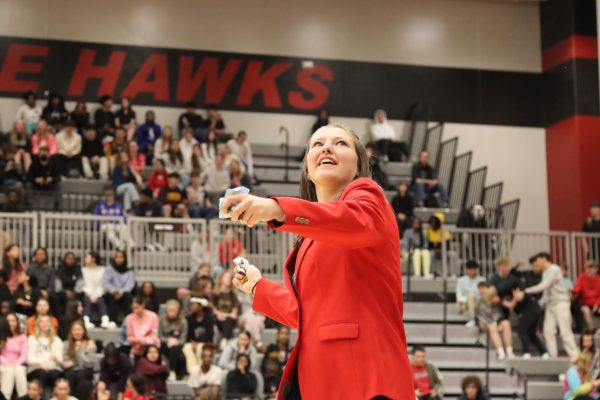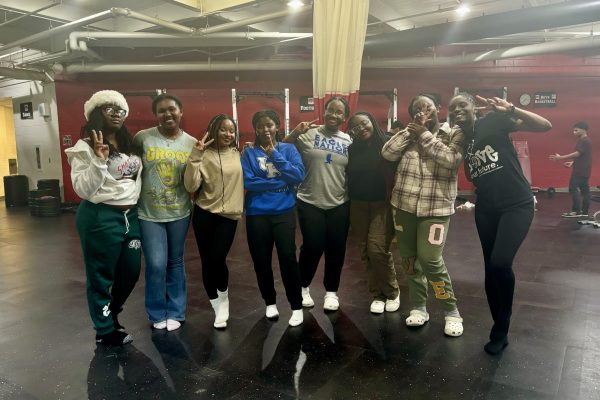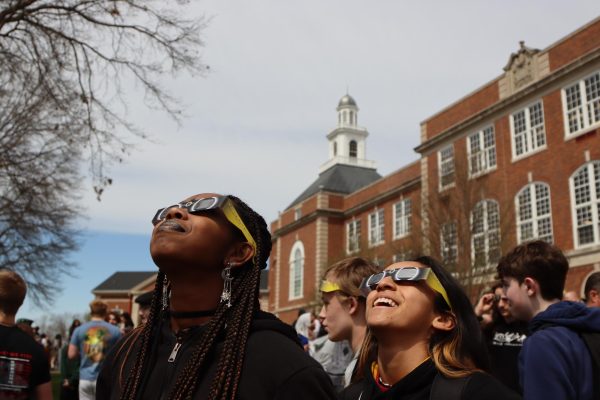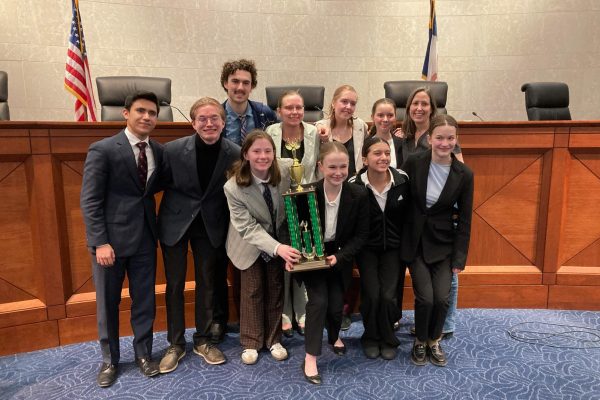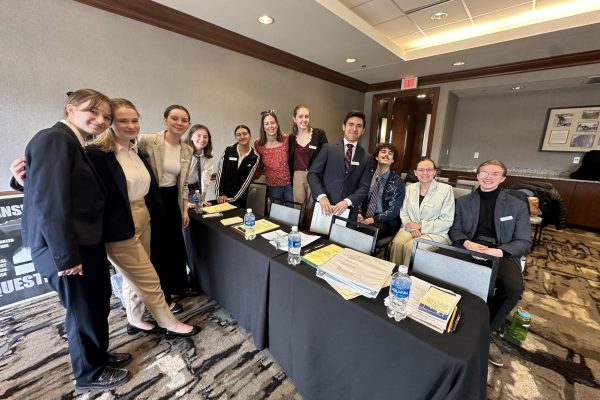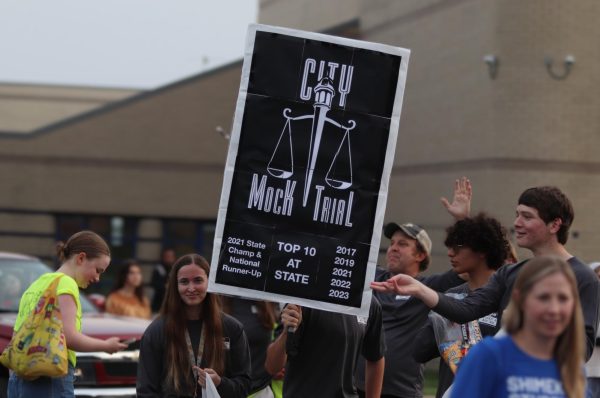Closest Race in the Nation
An official ballot drop box outside of the Johnson County Administration Building.
December 17, 2020
The 2020 November election was historic for a number of reasons, and the race to represent Iowa’s second Congressional District in the United States House of Representatives was no different. Mariannette Miller-Meeks (R) and Rita Hart (D) entered the race to replace Congressman Dave Loebsack (D), who is retiring after serving since 2007. After multiple recount requests from both campaigns, the Iowa State Election Board certified Miller-Meeks as the Congresswoman-elect. The congressional race was the closest national race in 2020 and one of the closest congressional races in modern history; it was decided by only six votes.
“2020 has been such an unusual year, and I guess this must just be in keeping with how unusual 2020 is. We expected that this was going to be a very close race, but I don’t believe anybody on either side expected it to be this close,” Eric Woolson, communications consultant and spokesman for the Miller-Meeks campaign said.
November 4, the morning after the election, Miller-Meeks had a total of 196,773 votes, with Hart’s total being 196,487. Jasper and Lucas counties then reported an error of vote counts for the Congressional race. Because of the miscounts that occurred, and how close the results appeared, all 24 counties in Iowa’s second Congressional District began the recount process. If the results of a race are within one percent, candidates may request a recount to take place without needing to put up a bond to cover the cost.
“We’re in a weird situation with this recount. This is only the second time it’s happened since I’ve been here for eight years. The first time was just a small University Heights recount, but in this case we’re recounting 84,000 ballots, every single one. It’s kind of overwhelming,” Travis Weipert, Johnson County auditor said.
After the initial results of the Congressional race were announced, many organizers immediately began curing ballots, reaching out to people who voted provisionally, where there were questions about a ballot or voter’s eligibility. This is legal in Iowa if the ballot was cast before polls close. Nick O’Connell worked as a political field organizer for the Battleground Iowa campaign in Jasper County, working to elect Democratic candidates up and down the ticket.
“It felt like there was no break after November 3, we right away got a sense that it was going to be a very close race. When I realized that all this was happening in Jasper [County], I felt like I had to keep doing this until the end. It felt like I had not finished my job yet for the candidates that I was working for,” O’Connell said. “Being an organizer, then on this other side of the race was definitely different. It felt much more like what a Voter Protection team was doing.”
To ensure both parties agree on, and are satisfied with the recount process, each political candidate is allowed to pick a representative from their campaign in each county to serve on a recount board. Once both have chosen their representative, a third person is mutually agreed upon. In all 24 counties where recounts occurred, both parties agreed on an unaffiliated third party.
“They’re looking for under and over votes. An under vote means somebody may have written in a name in the write-in line but didn’t fill in the oval, so the machine would not have caught that. An over vote would be that somebody filled in the oval on the write-in line, and also wrote [the candidate’s name]. The machine would say, ‘this doesn’t count, they voted twice,’” Weipert said.
It is up to each county to decide if they will conduct a recount through a machine or by hand. Most counties opted for a machine recount, while some combined machine and hand recounts, Scott County using the term “hybrid approach.”
“We ran all these ballots through our high speed tabulator on Election Day. When they’re done being run through, they go into boxes, sealed that can’t be opened unless something like this happens or a judge orders us to do so,” Weipert explained. “In this case, we’re reopening every single one. We have to run every single ballot through again and then we hand those ballots over to the three board members, and they go through it by hand.”
According to CNBC, the projected total votes in the United States reached record high numbers of ballots cast since the year 1900, with at least 159.8 million Americans voting. Just over 136.6 million votes were cast in the 2016 Presidential election. The state of Iowa also reached its highest voter turnout record, with almost 1.7 million Iowans casting ballots.
“We hit 84,000 votes [in Johnson County]. The old record was around 77-78,000 votes. We also set a record here in Johnson County for the most registered voters, we crossed the 100,000 registered voter line for the first time ever in the county,” Weipert said.
Miller-Meeks’ final vote count is 196,964, with Hart’s being 196,958. As the race was won by just six votes, many are using the Mariannette Miller-Meeks, Rita Hart race as an illustration of why every vote cast impacts the outcome of an election.
“This is a fantastic example of how every single vote matters and how important it is that we keep organizing and phone banking,” O’Connell said.
According to Circle Research, the overall youth voter turnout was much higher this year than it was in 2016. Although a majority of students at City High are not yet eligible to vote, many closely monitored this year’s unprecedented election.
“Even though I’m not eligible to vote, I’m aware of how important this election was, and this just proves how crucial it is for every citizen to exercise their constitutional right to vote,” Frances Bottorff ‘22 said.
While the State Election Board has certified that Miller-Meeks is the winner and Congresswoman elect. Rita Hart announced on December 2, that she plans to appeal to the House to take into account votes that were not considered in the recount. Hart decided not to contest the election in court.
“Think about the candidates themselves, and what a challenge this has been for both of them. Having a resolution is going to be very important. Congresswoman-elect Miller-Meeks appreciates everyone who took the time to go out and make sure their voice was heard,” Woolson said.





